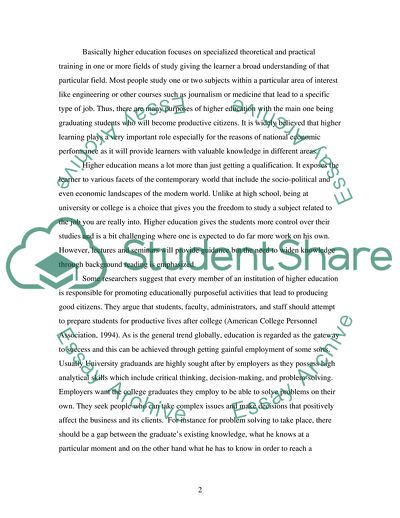Cite this document
(Importance of Higher Education in Contemporary Society Report Example | Topics and Well Written Essays - 1750 words, n.d.)
Importance of Higher Education in Contemporary Society Report Example | Topics and Well Written Essays - 1750 words. https://studentshare.org/education/1713404-education-issues-and-inequalities
Importance of Higher Education in Contemporary Society Report Example | Topics and Well Written Essays - 1750 words. https://studentshare.org/education/1713404-education-issues-and-inequalities
(Importance of Higher Education in Contemporary Society Report Example | Topics and Well Written Essays - 1750 Words)
Importance of Higher Education in Contemporary Society Report Example | Topics and Well Written Essays - 1750 Words. https://studentshare.org/education/1713404-education-issues-and-inequalities.
Importance of Higher Education in Contemporary Society Report Example | Topics and Well Written Essays - 1750 Words. https://studentshare.org/education/1713404-education-issues-and-inequalities.
“Importance of Higher Education in Contemporary Society Report Example | Topics and Well Written Essays - 1750 Words”. https://studentshare.org/education/1713404-education-issues-and-inequalities.


